Breathless (1960) Review - Dylan McCully
- Dylan McCully
- Sep 21, 2023
- 6 min read
Written by Dylan McCully, 09/22/22
Dylan McCully's Cinema: https://www.imdb.com/list/ls521125877/

"The Birth of a Nation", "Citizen Kane", "Breathless".
Three films that completely changed the trajectory of cinema. Not just innovative from a technical perspective, but in the way they shaped what a film was. With "The Birth of a Nation", Griffith invented the form. All movies derive from it. With "Citizen Kane", Welles became the master auteur in the days when that didn't exist. All other films paled in comparison. Welles stood among all other filmmakers as a giant. He perfected the film. Then came Godard, who didn't just break every rule in the book, but wrote his own. And everybody else followed, even to this day.
Director Jean-Luc Godard had this to say about the impact of Breathless: "There used to be just one way. There was one way you could do things. There were people who protected it like a copyright, a secret cult only for the initiated. That's why I don't regret making Breathless and blowing that all apart." Godard hired an unknown actor to play the male lead, wrote the script as he went along, and wanted a documentary feel, so he told cinematographer Raoul Coutard to shoot it all on handheld with no lighting. The entire film had to be dubbed in post-production because the camera was too loud. Godard would write dialogue in a notebook, show only the actors, then shoot until he ran out of ideas. On locations were shot on without permission. Godard got into a fistfight with producer Georges de Beauregard while filming. Instead of renting a dolly, Godard made cinematographer Raoul Coutard sit in a wheelchair with a camera and pushed him around. Pretty much every director, mainstream or small time has taken inspiration from it. The jump cuts were put into effect after the film was 30 minutes too long, so Godard cut out stuff he considered boring. Why do I mention all of this? The film is about meaninglessness; people doing nothing. Despite all of this, the film is one of the most influential and creative films of all time.
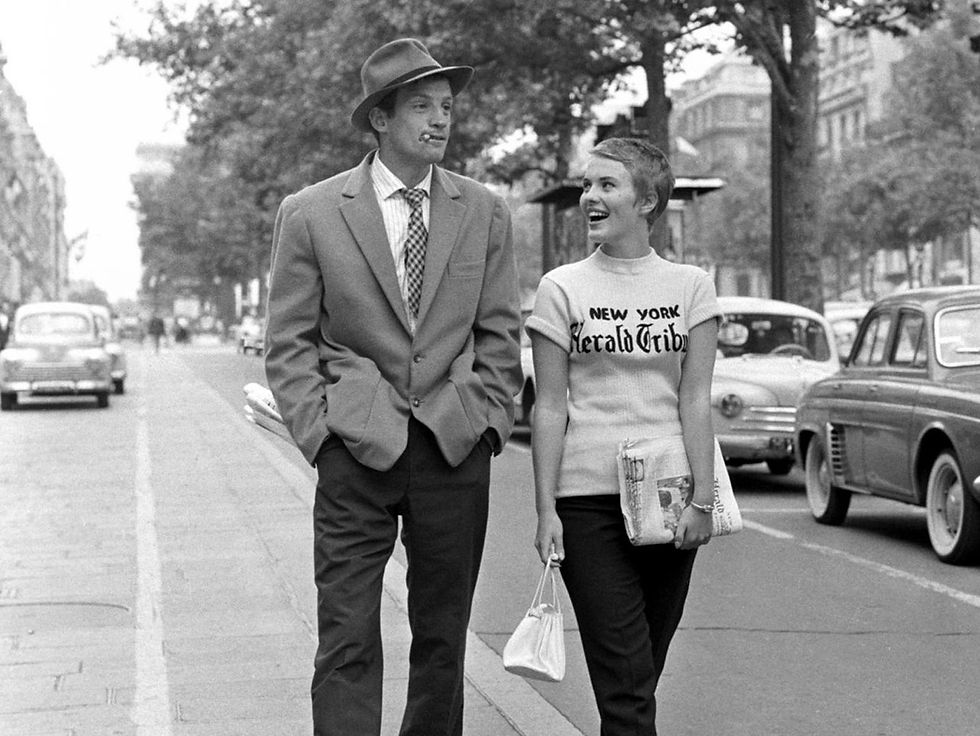
Jean-Paul Belmondo plays Michel, a criminal who takes inspiration from Bogart. Godard has a lot of films that do playful takes on film noir, and you can read the Wikipedia page for Breathless to find a list of all the subtle nods to the genre. Michel spends most of the film talking to love interest Patricia, played by Jean Seberg. Michel playfully tries to seduce Patricia while she asks him questions about life, art and everything in between. Belmondo is the ultimate cool in Breathless, in one of the most memorable performances in cinema. Nothing looks better on black and white film than cigarette smoke, so he smokes in every scene. Patricia is never truely invested in much, and Michel seems to only care about himself. Despite this, their chemistry makes the film what it is, and listening to them interpret their own lives is fasciniating. Sometimes the characters turn around and will talk to you. My favorite scene in the film is Michel and Patricia talking for a while in Patricia's apartment. There is a unique feeling from the dialogue and actors that others have tried to replicate (Tarantino especially), but none have done it as naturally. One of the first scenes in the film is Michel shooting a cop after a bit of a car chase. Patricia reveals she is pregnant, and Michel is the father. In other films, the director would focus on these things, but Godard focused on their musings instead. "Roughly speaking, the subject will be the story of a boy who thinks of death and of a girl who doesn't." says Godard.
There are lots of nods and winks that Godard throws in about his French New Wave peers. Patricia asks Michel: ""Between grief and nothing, I will take grief." Which would you choose?" Michel replies: "...Grief's stupid, l'd choose nothing. It's no better, but grief's a compromise. l want all or nothing." This perfectly represents the difference between Michel's instinctual drive and Patricia's more passive nature. The characters lack of care about the rules, along with the directors, inspired waves of antiheroes and fastpaced dialogue comtemplating about life in many films. Breathless is timeless. Belmondo will always be cool, Seberg will always be beautiful. The dialogue will always be charming, thought-provoking and unique. The cinematrography will inspire the next generation of filmmakers, and the next one after that. Godard threw the so-called "rules" in the trash, and wrote his own set, just like Orson Welles did with Kane. The contrast is funny between Welles and Godard: two titans of cinema. Welles broke the rules because he never learned them in the first place, thereby inventing techniques and innovating off of his own ingeniousness. Godard broke the rules because he knew them so well, studying the classic Hollywood films, tearing them apart and piecing them back together was his job as a film critic before becoming a filmmaker. Breathless is one of the greatest films of all time, one of the most important and legendary films of all time, and THE most influential film of all time. Despite being released over sixty years ago, cinema is still trying to catch up. The Birth of A Nation was surpassed by Citizen Kane. Citizen Kane was surpassed by Breathless. No film since has held such a firm grip on cinematic potential, and it's influence is unlikely to ever be surpassed.
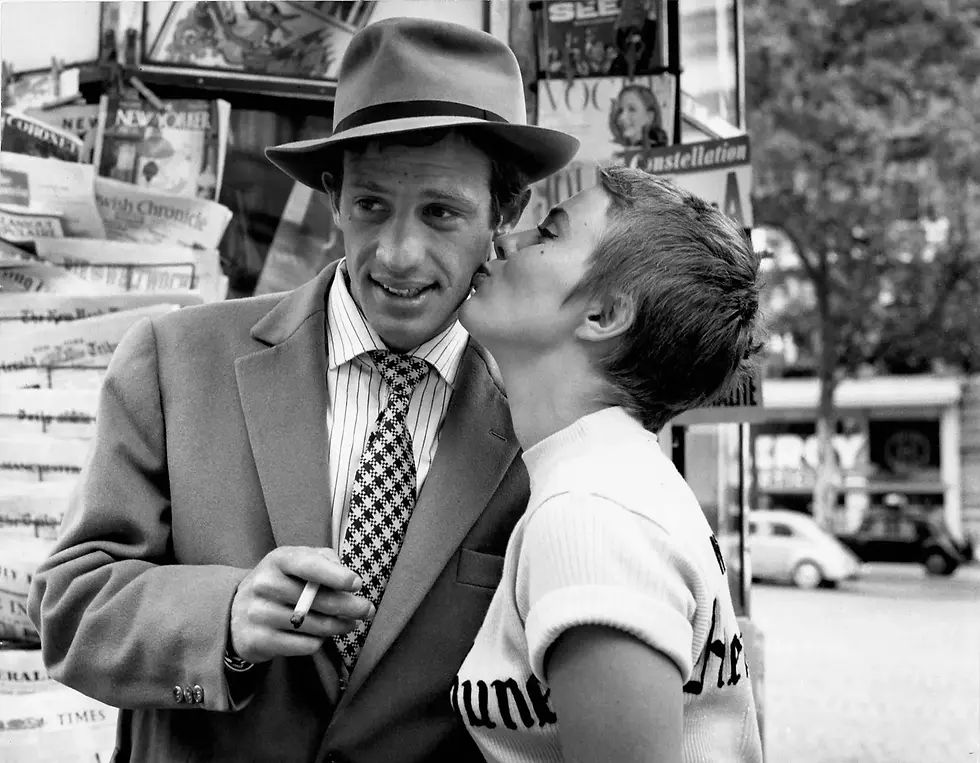
I always have more to say about Breathless. This time I took it as a look on finding meaning in life. Life ends. Everybody knows it, yet we all dance around the subject so we don't live in fear and sadness. When I look at most adults, I see shadows. Shadows of those who were once ambitious - dreamers, thinkers - people who enjoyed the moments in life. As people grow up, the child in them slowly evaporates as the years seem to move faster and faster. Why should we live if we are going to die? Godard answers that with Breathless. Love. From the time Michel sees Patricia until his final breath, the last thing on his mind is the crimes he's committed. That's also representative of Godard's own philosophy on cinema. The "plot" is the last thing on his mind. For both Godard as a director and Michel, Breathless is about love. Godard and his love for cinema, and Michel and his love for Patricia. These allow us to enjoy the moments, instead of some forced big picture stuff. Godard lives and breathes cinema, and it's clear to see. There are so many scattershot references to classic Hollywood films, and Michel himself just tries to be Bogart the whole time. Patricia is more uncertain about what she wants, and even by the end, she never makes up her mind. It's a funny thing that life does - sometimes you feel as if your decisions will either save or destroy the world, and sometimes it feels as if they've never mattered at all. In Breathless, a character that is absolutely certain about his decisions and a character who is never certain about her decisions find love. Or, as the way love sometimes is, one is certain about his love and the other is uncertain. The point is this: love is the reason to live. Whether to through people, or through art. The last thing Jean-Pierre Melville says in his small role is integral. (And the casting of actual director in this role is important to note as well). "What is your greatest ambition?" Patricia asks. After thinking for a moment, Melville replies "To become immortal, and then die." Melville plays an author in the film, and he's obviously talking about his art. But with this line, Godard is talking about his own art - cinema. There has never been one as passionate about cinema as Godard, and with it Godard can escape death, in a sense. All of our choices in our lives should be about making the most of them. Do what you love. Be impulsive. Or be indecisive.
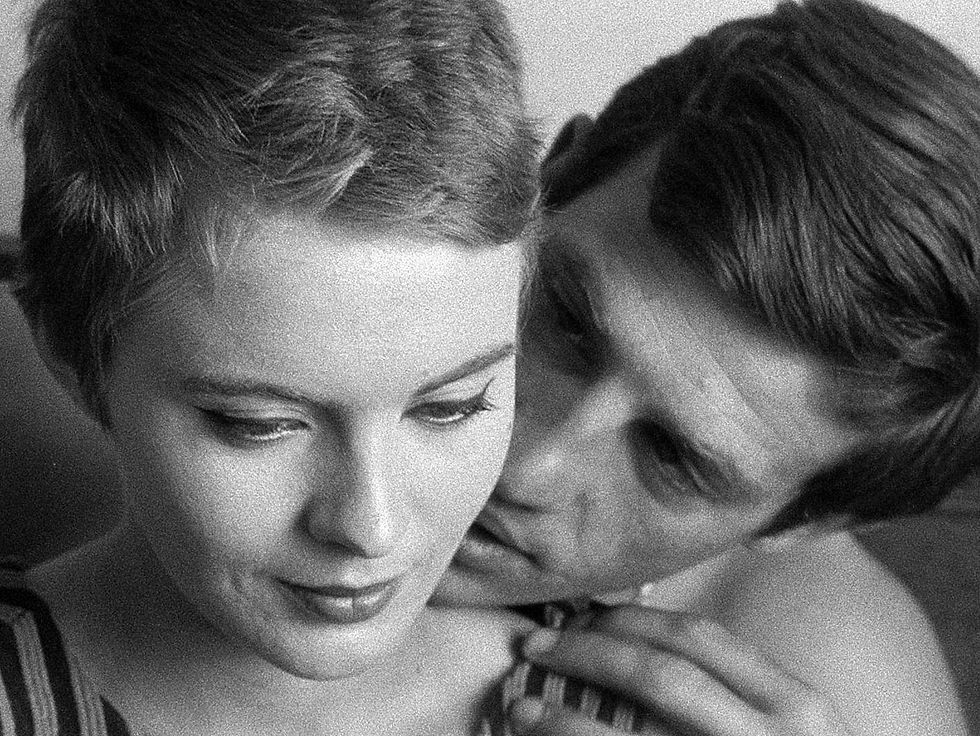
Anyway, it's hard to find a film I am more passionate about, a film I think about more often, or a film that's better than this one. 10/10
Jean-Luc Godard Ranking:
Breathless - 10/10




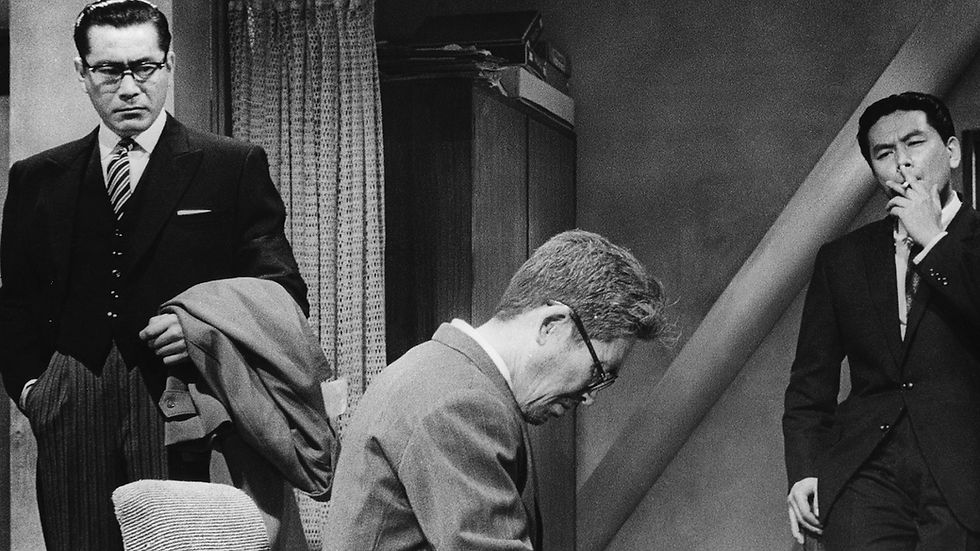
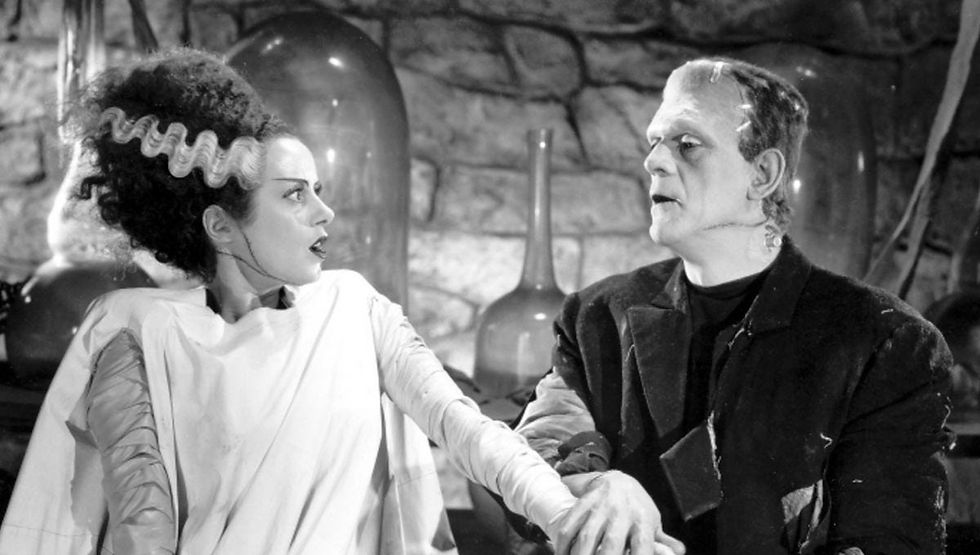
Comments